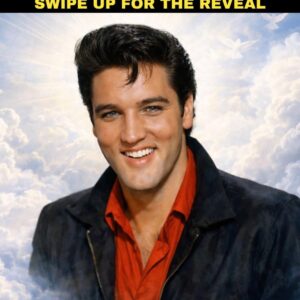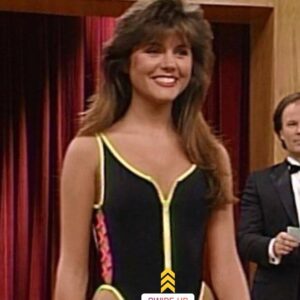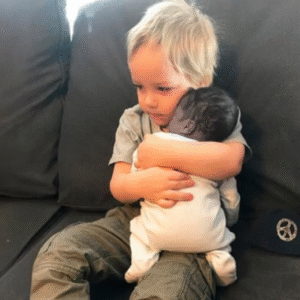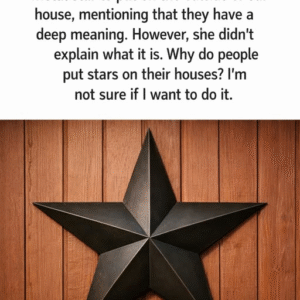“We Were Asked to Leave the Café — But What Happened Next Changed Everything”
One moment, my grandson Ben was laughing uncontrollably, his face nearly hidden behind a mountain of whipped cream. The next, everything shifted. A man at the next table clicked his tongue in irritation, muttering something about “kids these days” as he shot us a disapproving glance. Moments later, the waitress approached, her voice soft, her smile carefully practiced. “Would you two be more comfortable sitting outside?” she asked politely.
That small celebration after Ben’s dentist appointment suddenly felt tainted. The warmth of our little moment evaporated, replaced by the cold sting of embarrassment.
“Did we do something wrong?” Ben whispered, his voice trembling as his smile faded. “No, sweetheart,” I said softly, wiping a streak of whipped cream from his nose. “Some people just don’t know how to be kind.” I began bundling him back into his puffy jacket, ready to leave. But then Ben tugged my sleeve and looked toward the waitress, not the door. “Grandma,” he said quietly, “she has the same spot.”

I turned to look—and froze. The waitress had the exact same mark, in the same place, the same size. But it wasn’t just that. Her eyes, the shape of her nose, even the way her mouth tensed—it all struck something deep inside me. My heart began to race, an inexplicable feeling stirring in my chest.
We stepped outside into the cool air. I was zipping up Ben’s coat when I heard footsteps behind me. “Ma’am,” the waitress said, breath shaky, “can I talk to you a moment?” She was clutching the corner of her apron like it was the only thing holding her steady. “I’m sorry about what happened,” she began, “but that’s not why I came out. Is he… your biological grandson?”
Her question made my stomach twist. “No,” I said carefully. “My daughter adopted him. She and her husband passed away last year. I’m raising him now.”
Her eyes filled instantly with tears. “Was he born on September 11th?” she asked. “Yes,” I said, my heart pounding. She covered her mouth, sobbing softly. “I had a baby boy that day,” she whispered. “I was nineteen—alone and scared. I signed the adoption papers, but I’ve regretted it ever since. I’m not asking for anything. I just… needed to know.”
Through the café window, Ben pressed his little hand against the glass, tracing a heart in the condensation. “He needs love and steadiness,” I said gently. “If you truly want to be part of his life, we can try. But only if you’re sure.”
She wiped her tears and nodded. “Please,” she said, her voice firm now. “Come back inside. Let me make things right.”
When we returned, the same customers were still staring. The waitress set down her tray, straightened her shoulders, and said clearly, “For the record, this café does not tolerate discrimination. If that’s a problem, you’re free to take your coffee elsewhere.” The silence that followed felt heavy—but right.
From that day forward, Ben and I visited every week. Her name was Tina. She always saved our favorite window seat and made Ben’s cocoa with extra whipped cream. Sometimes she slipped stickers or tiny surprises under his saucer. Ben began to laugh again—real, belly-deep laughter, the kind that had been missing since the accident.
Years passed gently. One evening, as I folded laundry, Ben came in and asked, “Grandma, is Tina really my mom?” I froze. “Why do you ask?” “Because she looks like me,” he said simply. “And when I feel sad, she knows how to make it better—just like you do.”
“If I told you yes?” I asked softly. He grinned. “Then I’d be really happy.”
The next morning, I told Tina everything. We cried at my kitchen table, hands clasped, the kettle whistling softly behind us. Later that day, we told Ben together. He didn’t cry or gasp—he just smiled knowingly. “I knew it,” he whispered.
That afternoon, back at the café, Tina brought out our drinks, her hands trembling. Ben ran into her arms, hugging her tightly. “Hi, Mom,” he said. Her tears fell freely this time—not from grief, but from pure, overflowing love.
I still miss my daughter deeply. Some mornings, the ache feels too heavy to carry. But I know what she would have wanted—for her boy to be loved, fully and fiercely. And he is. Now, when the doorbell rings or a car pulls up outside, Ben listens for Tina’s laugh.
We don’t just belong to that café anymore. We belong to each other.
Sometimes, life takes you somewhere unexpected—a cold sidewalk outside a café, a stranger’s trembling apology—and shows you that what feels like an ending is really a beginning.




